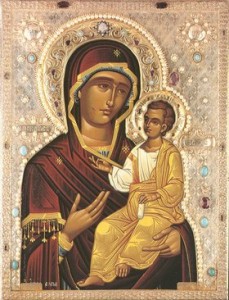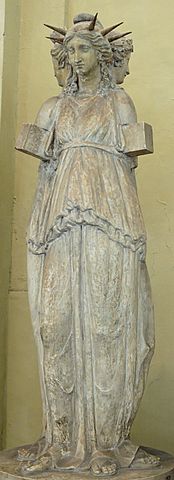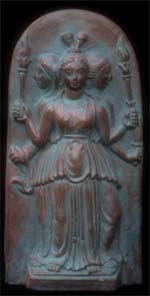 What happens when your world gets turned upside down and in the confusion of reevaluating all that you thought true, the people you regarded as allies distance themselves or judge you? Christine Benvenuto’s memoir of love, betrayal and change is getting attention for its portrayal of the somewhat sexy topic of sex change, but as the writer of a spiritual blog I was more drawn to the theme of community support, particularly support from religious community.Christine was in a marriage of over twenty years with three small children when her husband “Tracey” announced his intention of exploring gender transition. (Note: Christine uses male pronouns for Tracey in the book.) Over the following year, Christine resisted each step of her husband’s transition. As events unfolded, Christine says “I clung to stasis like a fraying lifeline, kicking and screaming as it slipped through my fingers.” (Christine does not like the word “transition.” She explains, “Transition implied to me something ordinary, something gentle, something – dare I say it – natural.” Although her point is well taken, I will use this word here because it is the word we have for this process.) As the transition progressed and Christine became resigned to the ending of her marriage, she insists that a new Tracey emerged: “He didn’t seem the same. He didn’t act the same, didn’t sound the same. His values seemed to change along with his personality.” The new Tracey was controlling and abusive. He expected her to adjust to marriage with a transwoman. He made promises and concessions and repeatedly reneged on them, often insisting such agreements had never been made. When Christine insisted that the marriage must end if he persisted with the transition, Tracy took a page out of so many controlling husbands’ playbook and threatened her with loss of her children and possessions.I’m always skeptical when I hear that a spouse has abruptly changed from a supportive partner to a controlling one. Particularly in a marriage as long-standing as this one, it seems more likely that those behaviors were there all along and became more pronounced. Still, Christine’s reaction to her husband’s transition was not one of a traumatized wife. When initially confronted with the changes, she argued that Tracey’s transition robbed her of a husband and that it was damaging to their children. When Tracey would not abandon transition she separated from him and fought for her rights under divorce laws. She also insisted on viewing Tracey’s transition from her own perspective rather than accepting Tracey’s narrative. And it was Christine, not Tracey, who longed to shroud the embarrassment of their disintegrating relationship in secrecy. She explains “I grew up in a family and a culture in which, if something bad happened, you didn’t advertise.” Fortunately for her, Tracey wanted their small town, religious community, and circle of friends to learn about and understand his transition, so secrecy could not remain an option. But this is the point where life for Christine, for awhile, truly became rough.Tracey’s psychotherapist, perhaps not surprisingly, chose to view the situation from Tracey’s individual perspective and in his personal self-interest rather than in a systemic way, through family dynamics. Somewhat more surprisingly, Christine encountered judgment and ostracism from her liberal small town and individuals in her religious community. This was because, in their view, she had failed to support Tracey sufficiently in his transition. Also, because Tracey was angry with her, the community felt a need to side with him because he was transgendered. Christine charges that in the point of view of the community, his being transsexual means “Anything he does is justified.”Perhaps I overidentified with this part of Christine’s narrative. The parallel between her experience and the persecution of Dianic witches in recent years is striking. Ostensibly both have been about supporting trans rights versus born-women’s autonomy. I would argue that this is a false choice, but it is a choice pagans believe they are forced to make, even if they would not frame the issue so starkly. That the interests of genetic women are abandoned in this situation is not surprising, really. The mutterings against a religious subculture defined by women have been long-standing in the larger pagan community, albeit rather muted before the issue of trans inclusion appeared as a politically correct cudgel. Applying this insight to Christine’s situation, perhaps the community was responding out of their ingrained bias that a wife should support her husband over her own interests. Tracey’s new presentation as a transwoman to people who had known him as a man, and doubtless still thought of him as a man despite their desire to appear otherwise, may have allowed the community to fool themselves into thinking that they were not acting out age-old patriarchal patterns. At any rate, it was the betrayal by community that was hardest to overcome. Christine says:
What happens when your world gets turned upside down and in the confusion of reevaluating all that you thought true, the people you regarded as allies distance themselves or judge you? Christine Benvenuto’s memoir of love, betrayal and change is getting attention for its portrayal of the somewhat sexy topic of sex change, but as the writer of a spiritual blog I was more drawn to the theme of community support, particularly support from religious community.Christine was in a marriage of over twenty years with three small children when her husband “Tracey” announced his intention of exploring gender transition. (Note: Christine uses male pronouns for Tracey in the book.) Over the following year, Christine resisted each step of her husband’s transition. As events unfolded, Christine says “I clung to stasis like a fraying lifeline, kicking and screaming as it slipped through my fingers.” (Christine does not like the word “transition.” She explains, “Transition implied to me something ordinary, something gentle, something – dare I say it – natural.” Although her point is well taken, I will use this word here because it is the word we have for this process.) As the transition progressed and Christine became resigned to the ending of her marriage, she insists that a new Tracey emerged: “He didn’t seem the same. He didn’t act the same, didn’t sound the same. His values seemed to change along with his personality.” The new Tracey was controlling and abusive. He expected her to adjust to marriage with a transwoman. He made promises and concessions and repeatedly reneged on them, often insisting such agreements had never been made. When Christine insisted that the marriage must end if he persisted with the transition, Tracy took a page out of so many controlling husbands’ playbook and threatened her with loss of her children and possessions.I’m always skeptical when I hear that a spouse has abruptly changed from a supportive partner to a controlling one. Particularly in a marriage as long-standing as this one, it seems more likely that those behaviors were there all along and became more pronounced. Still, Christine’s reaction to her husband’s transition was not one of a traumatized wife. When initially confronted with the changes, she argued that Tracey’s transition robbed her of a husband and that it was damaging to their children. When Tracey would not abandon transition she separated from him and fought for her rights under divorce laws. She also insisted on viewing Tracey’s transition from her own perspective rather than accepting Tracey’s narrative. And it was Christine, not Tracey, who longed to shroud the embarrassment of their disintegrating relationship in secrecy. She explains “I grew up in a family and a culture in which, if something bad happened, you didn’t advertise.” Fortunately for her, Tracey wanted their small town, religious community, and circle of friends to learn about and understand his transition, so secrecy could not remain an option. But this is the point where life for Christine, for awhile, truly became rough.Tracey’s psychotherapist, perhaps not surprisingly, chose to view the situation from Tracey’s individual perspective and in his personal self-interest rather than in a systemic way, through family dynamics. Somewhat more surprisingly, Christine encountered judgment and ostracism from her liberal small town and individuals in her religious community. This was because, in their view, she had failed to support Tracey sufficiently in his transition. Also, because Tracey was angry with her, the community felt a need to side with him because he was transgendered. Christine charges that in the point of view of the community, his being transsexual means “Anything he does is justified.”Perhaps I overidentified with this part of Christine’s narrative. The parallel between her experience and the persecution of Dianic witches in recent years is striking. Ostensibly both have been about supporting trans rights versus born-women’s autonomy. I would argue that this is a false choice, but it is a choice pagans believe they are forced to make, even if they would not frame the issue so starkly. That the interests of genetic women are abandoned in this situation is not surprising, really. The mutterings against a religious subculture defined by women have been long-standing in the larger pagan community, albeit rather muted before the issue of trans inclusion appeared as a politically correct cudgel. Applying this insight to Christine’s situation, perhaps the community was responding out of their ingrained bias that a wife should support her husband over her own interests. Tracey’s new presentation as a transwoman to people who had known him as a man, and doubtless still thought of him as a man despite their desire to appear otherwise, may have allowed the community to fool themselves into thinking that they were not acting out age-old patriarchal patterns. At any rate, it was the betrayal by community that was hardest to overcome. Christine says:
Because he believed he was doing what he had to do, it is easier, ironically, for me to forgive Tracey than the community who supported him and abandoned my children and me…. By these people, many of them women, many of them Jewish, many of them feminists, my children and I were betrayed. In the Valley of the Politically Correct, their choice wasn’t difficult or brave. It required them to be deeply true to nothing and no one. It was cowardice, pure and simple.
Tracey’s decision to transition was ultimately a good thing for Christine, despite Tracey’s selfishness toward her and their children, despite the harsh rewriting of what she had believed was a happy marriage, despite the loss of her religious fellowship, and despite the coolness of self-advertised progressives in her community. Her pain was too great to endure in isolation, and she was forced to risk an intimacy in her friendships that she otherwise would not have. She learned who her friends were and who they weren’t. “A religious community we thought we could rely on fell away; once peripheral friends drew close.” As dedicated religious fellowships became less central, Christine began to bring a spiritual perspective into her friendships, asking that close friends, Jewish or not, begin relating to her as a religious person. To her surprise, people who had not pulled away from her which she separated from her husband accepted her on other levels as well.Sex Changes chronicles one woman’s acceptance of unwelcome changes that eventually improved her life. It also raises troubling questions about how communities are dealing with transgender issues.






